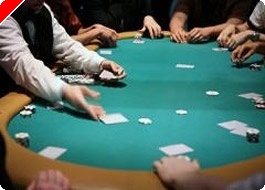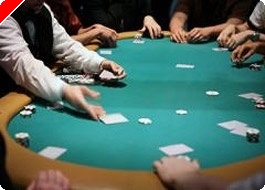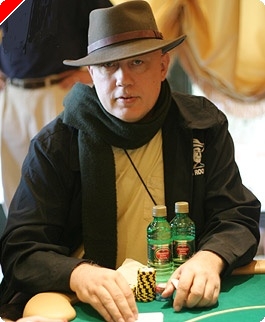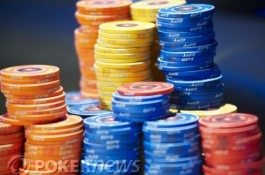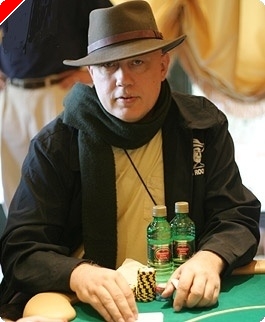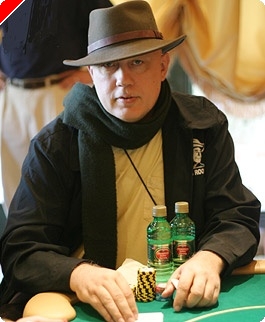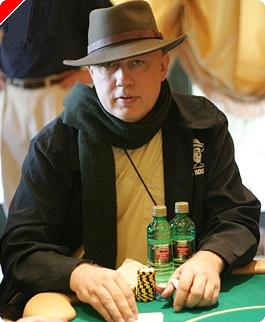Inside the Poker Tour �� 80: Bubble Time in Sydney
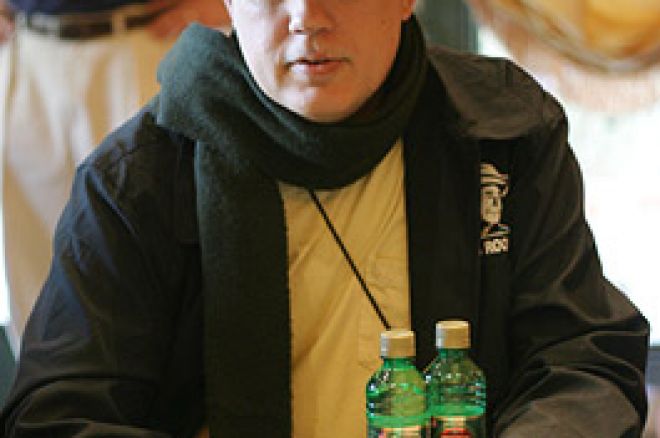
When should hand-for-hand play be enforced? The question came up at Sydney's Star City Casino, recently, at a preliminary event, one in which I played. We did not go hand-for-hand in Event #1 although 30th paid AU $975. As it unfolded, a floorperson was monitoring the four tables and would alter the play if it was "untrue". Say what?
My own case is not irrelevant. The young player on my right, sitting next to the dealer in seat one with the blinds at 1000-2000, went all-in out of turn, with the ten seat still to act. When the ten seat (on the button) raised to 6000, this same player mucked his hand instantly. This occurred with 35 players left and would have eliminated the little blind in any normal venue as all five players on our end of the table heard the no-doubt "all-in", which I took to be a ploy, clearly an angle, but the dealer said that he did not hear him!!!
Hard to believe (since the dealer was in the adjacent seat), but we proceeded, and the next time around in the little blind the same player moved all-in again for 21,000. I had A-8 offsuit in the big blind and was fairly sure that I held the better hand. I called off a stack of 23,000 as I was only interested in finishing first, not in creeping into the money. He turned over Q-5 offsuit and stood up; the board came 9-7-Q-5-K, and he sat back down with most of my chips as well as his. The very next hand it was passed to me in the little blind, and I called the 2000 big blind with my last chip and K-3 offsuit. The big blind had Q-3 off and my hand won without anyone making a pair. Now I had 4000 in chips and the blinds climbed to 1500-3000, so obviously I have one more hand to play, and need to win it if I am to make the money. So every time it comes to me I take about 40 seconds to decide.
I am dealt 6-5 off, 6-4 off, J?5?, and 8?2? in order. With the 8?2? I think about going all-in as I am two in front of the big blind. Now, four of the five players behind me leave the table! Only the big blind is behind me now, but before I have decided if it is right to play heads-up with this hand for my tournament life, and am comparing it (not favorably!) to a random holding, the TD announces that we are at 31 players, and I muck. The next hand the kid on my right has the big blind and someone at another table goes broke, and I am in the money! A miracle! My table then broke and I waited four more hands before picking up K?3? under the gun and moving my 4000 into the pot. A kid called with 6?6? from midfield and the big blind called as well; it came Q?10?4?K?6? and I died from a one-outer. Oh, well.
Earlier in this event I had J?J? and made it 4000, as I was regularly doing over a 1200 big blind in the two hole off a stack of 18,000, and the little blind went all-in off a stack of 20,100. I called and he expressed surprise that I called with such a weak hand. He had A?K? and after five blanks came off I had 37,200. I cannot imagine not playing this hand, given my chip count. Little did I know that from there any plays I might make would be total bluffs as my best two hands going forward were A?9? in the big blind against an early-position, all-in play, and 2?2? UTG in my final two hours of this competition. It's not impossible to win from here, but clearly easier if you pick up hands with which to raise or re-raise without having to think about it �� the hands rightly called 'no-brainers'.
Even earlier in this tournament I had 8000 at the 50-100 level (everyone started with 5000 in chips) and held 4?5? in the little blind. The two hole made it 300 off a stack of 10,000 and three players called. I called also, and the flop came 5?4?2? with me checking, the preflop raiser betting 1500 and the button calling off a stack of 8500 with the others passing. I now moved all-in and the first player agitated for some time and called. The button passed and the early-position player turned up K?K? hoping that I held a draw. After 9?3? appeared, I more than doubled up to near the chip lead.
Two rounds later I made it 300 UTG with 9?9? and was called by the player in the three hole. The flop came K?8?5? and I led out for 600 (into a pot of 750) with this player calling me. The turn brought an 8? and I bet 1200 (into a pot of 1950) and he called right away. The river was a 2? and I checked and he bet 1800. I thought a bit and mucked as the only hand I can hope to beat is a busted flush draw. The point of this is that knowing the players is huge, and out of 231 players I knew only three players so that getting fast reads on many of them was very important, but quite difficult (for me), early on.
Despite cashing, I left thinking that the rulings from the floor should have been more consistent, and related to an understanding of why hand-for-hand rules were put in place. Rules are there because someone abused a situation in the past, and therefore what happens is not open to an individual's whim. For example, not only did a player pick up a card from the floor and put it into his hand in one event, his hand was ruled "okay" and play continued! The reason that the rule says the card must be placed face up and replaced is that a player in this situation could have the option of looking at the card and keeping it if it is an ace, but replacing it if it is a deuce.
I never got close to the money in the four events following. I hope it was variance, but that is putting a positive spin on an ugly, 0-for-4 result.
Until next time, play good and get lucky!

